Learning beyond the classroom: $1.5 million in government funding helps support youth programming for reconciliation and climate action
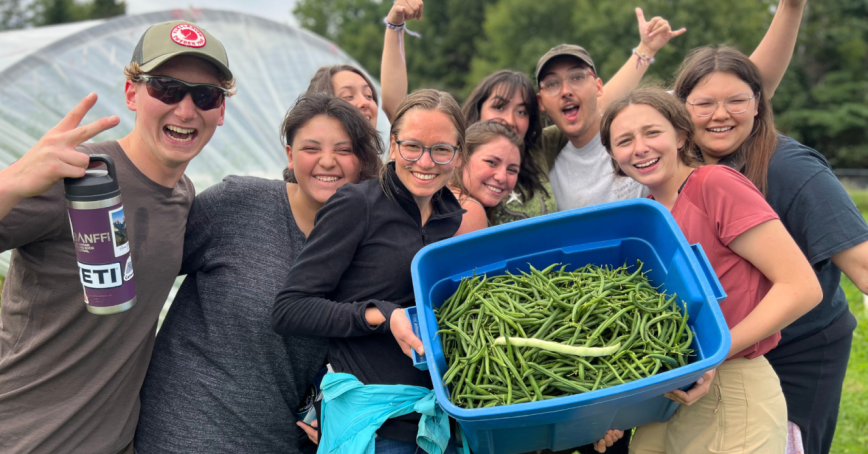
Learn more about programs in the School of Environment and Sustainability and in the School of Humanitarian Studies.
Imagine learning about pressing challenges in our world, like reconciliation and the climate crisis, not within the confines of a classroom or from the pages of a textbook, but on the land and from the living world around you.
That’s what is on offer for young people taking part in programs offered by Howl, a non-profit organization that offers land-based learning opportunities for young people aged 15 to 30.
A partnership project between Royal Roads University and Howl has been established, thanks to $1.5 million in funding from the Canada Service Corps service placement funding stream, so more young people can have unique field-study experiences which combine natural sciences curriculum, Indigenous Knowledge, and on-the-land learning with opportunities for both community building and resume building too.
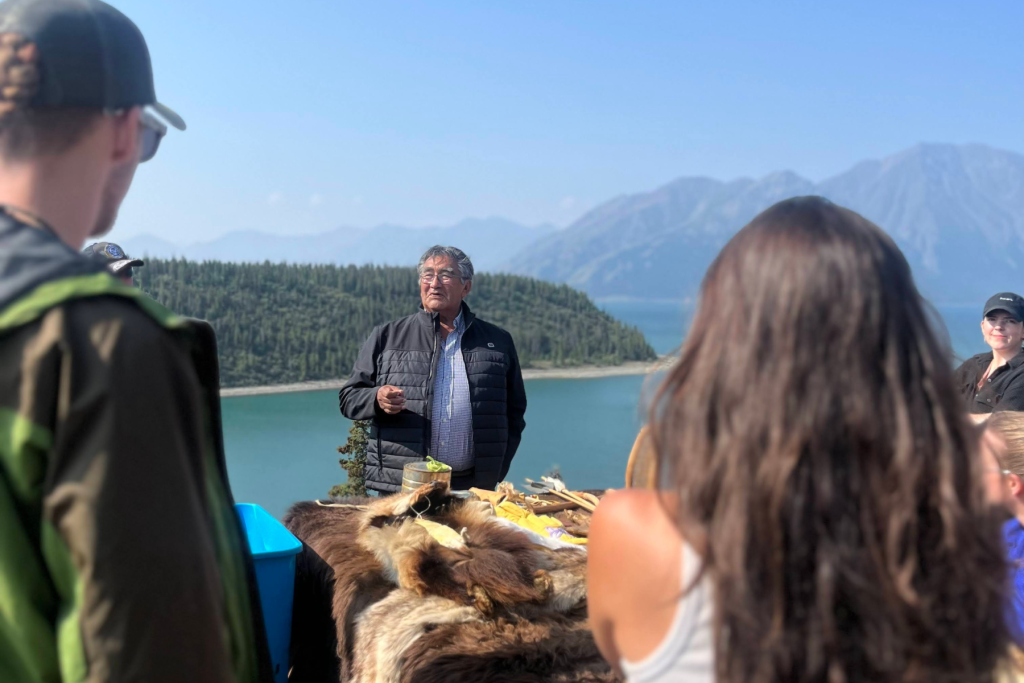
Elder James Allen (Champagne & Aishihik First Nations) shares cultural knowledge and stories about his family's trapline on the shores of Kluane Lake, Yukon.
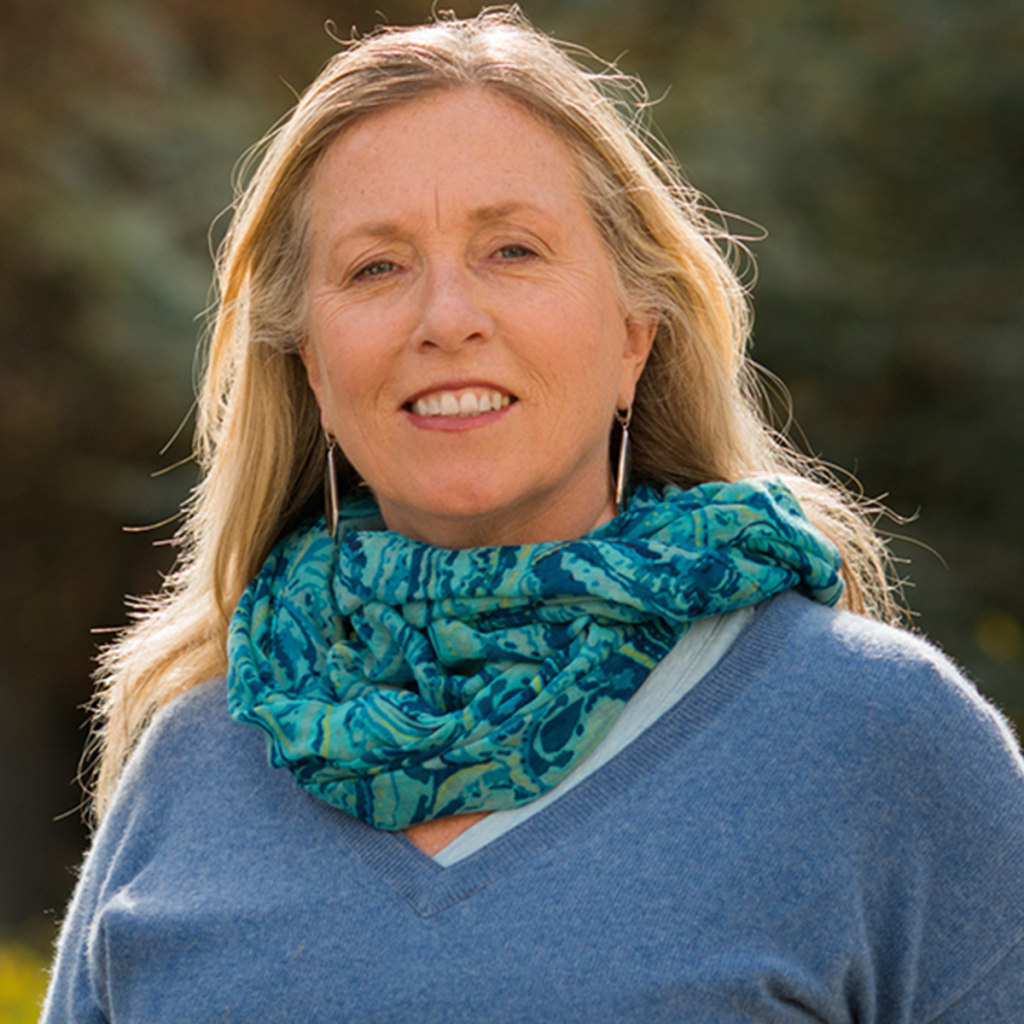
“Howl is addressing a really important and problematic gap in young people’s education,” says Dr. Robin S. Cox, director of Royal Roads’ Resilience by Design (RbD) Research lab, and project lead. “The Building Youth Resilience Through Community Connection [project] offers youth an opportunity to not only hear about reconciliation but to practice it with other Indigenous and non-Indigenous youth. At the same time, participating youth are engaged in land-based learning focused on climate change and environmental stewardship, and connecting with each other and themselves.”
Howl, located in Alberta’s Bow Valley of Treaty 7 territory, launched its first program in 2022. Experiences for youth include skills training, service and volunteer experience and entrepreneurship training and take place in the Canadian Rockies, Maritimes and Yukon. Programs can last from five days to a full semester.
At its core, the program blends land-based learning with what it is to know a place according to the people of that place.
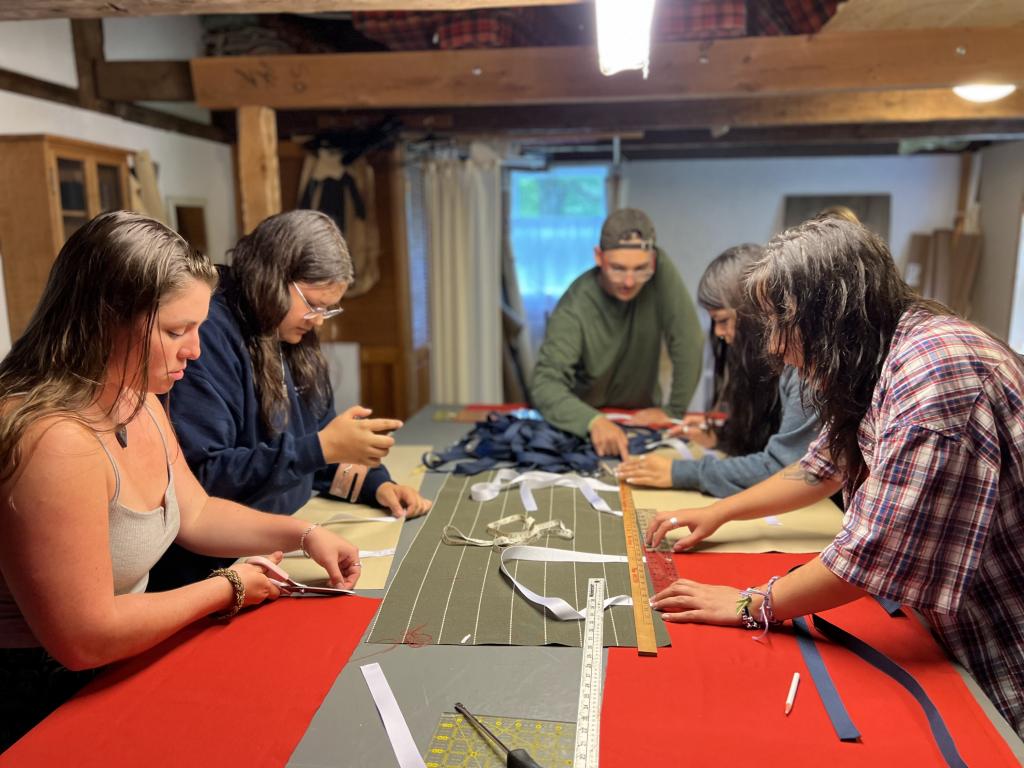
Howlers take part in an assortment of skills-based workshops in rural Nova Scotia, including sewing tote bags and learning how to can salsa.
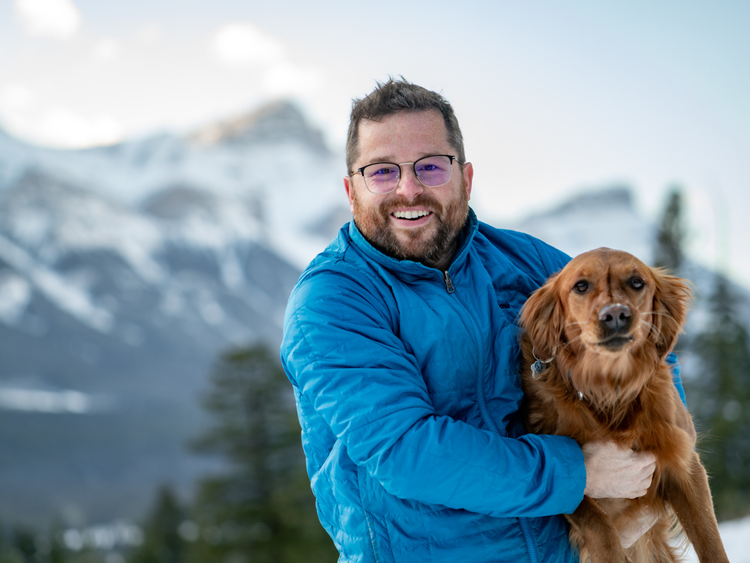
“They learn science — focused on the climate and environmental conservation – and they’re learning it through multiple lenses and perspectives, and they’re doing so in a tangible way,” says Adam Robb, Howl Founder and co-director. “So, it’s visiting the glacier and it’s visiting the fire scar and it’s hearing from the experts that are dealing with topics related to climate change impacts and environmental stewardship.”
Robb, who was a high school teacher for 15 years, says Howl emerged to address the gap in learning opportunities for young people around reconciliation and climate change and how to take action on these.
“A lot of high school kids are graduating with a lot of anxiety on one hand about climate change and the state of the world and, on the other hand, with very few tools and a lack of understanding about what they can do about these issues,” he says. “Education isn’t changing fast enough to keep up with the complexity of today’s issues so Howl is definitely a response to that.”
The challenge is enormous, but Cox emphasizes that it's crucial to work on closing it.
“Royal Roads’ vision is ‘inspiring people with the courage to transform the world.’ This project aligns with our commitment to meaningful, powerful, transformative education and amplifies our commitment to take action on climate change and contribute to societal transformation in a positive way,” says Cox. “By working with and supporting Howl with this project, we are really walking the talk of our values.”
The goal of the 10-month action research and service project is to serve 270 youth from across the country in ways that empower them and engage with the with the big topics affecting their communities. The program runs through March 2024 and Royal Roads will help Howl expand their programming while also helping them to formalize their curriculum and curriculum outcomes in ways that contribute to the long-term sustainability of their programs.
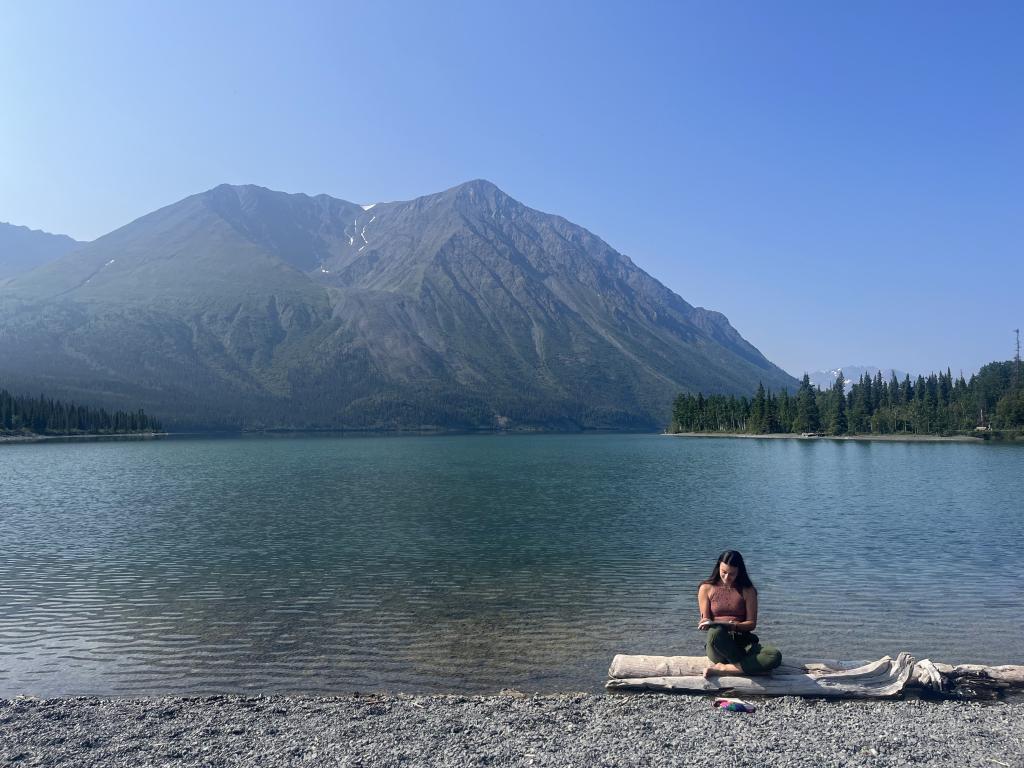
A Howler takes a moment to reflect on the shore of Mät’àtäna Män (Kathleen Lake) in Kluane National Park, Yukon.
In part, the government funding supported the hiring of a post-doctoral researcher to work alongside Cox and Robb so that they can identify the competencies young people are gaining as a result of their participation in Howl experiences. The research is also gathering feedback from participants to help refine future programming.
“We knew something needed to change,” Robb says, “and we knew youth were looking for more and we brought a community of people together to provide that answer. We haven’t captured the ‘secret-sauce’ of what makes Howl programming so powerful and that’s where education experts like the ones at Royal Roads can help.”
While securing government funding is fantastic for both Howl and the young people they reach, it’s really great for all citizens of the planet, Cox says, who stresses that we need young people to not only be invested in climate action and reconciliation, but also to feel empowered to create real change.
“We need reconciliation and decolonization to happen, we need climate action to happen and we need both of those things to be happening way faster than they are, with way more people involved in taking action,” she says. “So this project is an investment in that — it’s a small one, relatively speaking, but from that perspective, it’s fantastic for everybody if this work is successful.”
Building Youth Resilience Through Community Connections is funded in part by the Government of Canada under the Canada Service Corps.